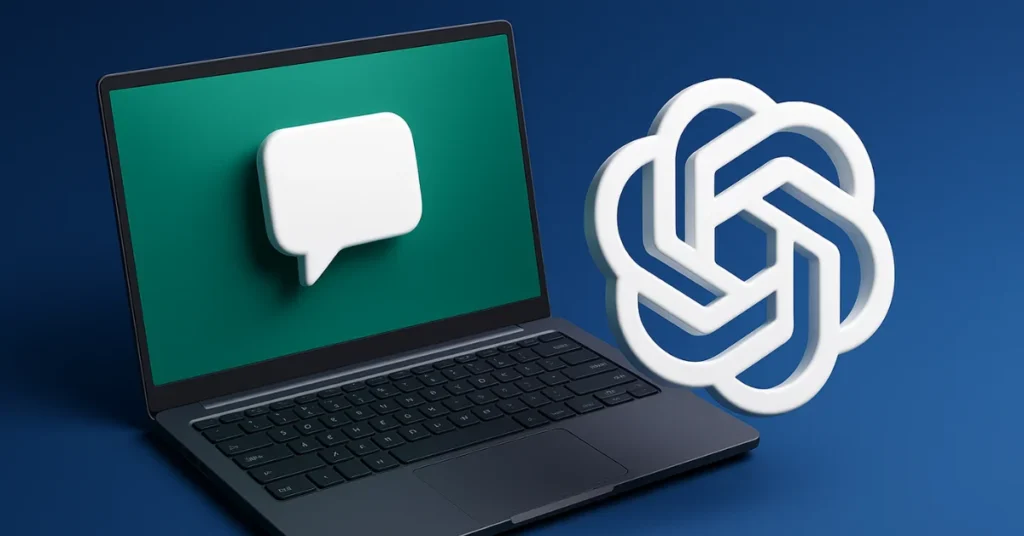
In June 2025, OpenAI, the creator of ChatGPT, secured a landmark $200 million contract with the U.S. Department of Defense (DoD) to develop advanced artificial intelligence (AI) tools for national security and administrative tasks.
This OpenAI government deal marks a pivotal moment for AI in the public sector, signaling a deeper integration of commercial AI into government operations. Announced as part of OpenAI’s new “OpenAI for Government” initiative, the one-year pilot program aims to streamline bureaucratic processes, enhance cybersecurity, and bolster national security readiness.
But what does this deal mean for the future of AI in U.S. public sector applications? This article explores the implications, opportunities, and challenges of this historic partnership.
The Scope of OpenAI’s $200M Pentagon Contract
The OpenAI Pentagon contract, awarded through the DoD’s Chief Digital and Artificial Intelligence Office (CDAO), tasks OpenAI Public Sector LLC with prototyping “frontier AI capabilities” for both warfighting and enterprise domains.
According to the Pentagon, most work will occur in the National Capital Region, with an expected completion date of July 2026. Key focus areas include:
- Administrative Efficiency: Streamlining healthcare access for service members and their families, optimizing program and acquisition data, and reducing bureaucratic workloads.
- Cybersecurity: Supporting proactive cyber defense to protect critical infrastructure and prevent cyberattacks.
- National Security: Developing secure, compliant AI models for mission-critical tasks, aligning with OpenAI’s usage policies to avoid privacy violations or unethical applications.
This contract is OpenAI’s first official defense deal, though it builds on prior government collaborations, including partnerships with NASA, the National Institutes of Health, and national labs like Los Alamos and Lawrence Livermore.
The deal also positions OpenAI as a competitor to established defense tech firms like Palantir, signaling a shift toward commercial AI providers in public sector contracts.
Reuters reported that this is one of the largest DoD contracts awarded to a software provider by annual value, underscoring its significance.
OpenAI for Government: A New Era of Public Sector AI
The OpenAI government deal coincides with the launch of the “OpenAI for Government” initiative, which consolidates OpenAI’s public sector efforts under one umbrella.
This program aims to equip U.S. public servants with advanced AI tools, including ChatGPT Enterprise and ChatGPT Gov, to enhance efficiency and mission impact. Key features of the initiative include:
- Secure AI Deployment: Providing AI models in compliant environments to meet stringent government security protocols.
- Custom Solutions: Offering tailored AI models for national security on a limited basis, with hands-on support for strategic planning.
- Existing Partnerships: Unifying collaborations with federal, state, and local agencies, such as a Pennsylvania pilot where state employees saved nearly two hours daily on paperwork using ChatGPT.
OpenAI’s blog post emphasized that the initiative seeks to “improve the day-to-day experience of public service” while ensuring all use cases adhere to its ethical guidelines, such as prohibiting AI for facial recognition or real-time biometric identification without consent. OpenAI’s official announcement highlights its commitment to public good.
Implications for AI in the Public Sector
The OpenAI Pentagon contract has far-reaching implications for AI in the public sector, reshaping how governments leverage technology. Here are the key takeaways:
1. Accelerated AI Adoption Across Agencies
The DoD’s investment validates AI as a strategic asset, likely spurring other federal agencies to accelerate AI adoption. Posts on X reflect mixed sentiment, with some praising OpenAI’s public sector “moat” and others questioning the pace of government AI integration.
This deal could catalyze similar contracts with agencies like the Department of Homeland Security or Veterans Affairs, expanding AI’s role in healthcare, data analysis, and citizen services.
2. Efficiency Gains for Public Servants
By automating repetitive tasks, AI can free up public servants to focus on mission-critical work. For example, OpenAI’s tools could reduce administrative burdens, as seen in the Pennsylvania pilot, potentially saving billions in operational costs annually.
This aligns with the White House’s April 2025 guidance to ensure federal agencies benefit from a competitive AI marketplace.
3. Ethical and Privacy Challenges
Critics, including analysts on Medium, warn of ethical risks in military AI applications, citing OpenAI’s lack of a public Defense Ethics Board.
Concerns include potential misuse of AI in surveillance or autonomous systems, despite OpenAI’s safeguards. CNET noted that the deal tests OpenAI’s privacy policies, which prohibit compromising individual rights. Ensuring transparency and third-party oversight will be critical to maintaining public trust.
4. Competitive Landscape Shift
The contract positions OpenAI ahead of competitors like Anthropic and xAI in the public sector AI race.
Analysts suggest this deal is a “beachhead” for OpenAI to dominate government AI-as-a-Service (AIaaS) markets, similar to SaaS in the private sector.
AInvest reported that OpenAI’s $10 billion annualized revenue and $40 billion funding round give it a financial edge to scale government partnerships.
5. Geopolitical Implications
The deal reflects U.S. efforts to counter China’s AI advancements, with Pentagon officials viewing AI as a strategic asset in a “cold war” tech race.
OpenAI’s partnership with defense startup Anduril for anti-drone systems underscores this trend. Medium highlighted the cultural shift in Silicon Valley’s embrace of military contracts.
Opportunities and Challenges Ahead
The OpenAI government deal opens doors for innovation but also presents hurdles:
- Opportunities:
- Innovation: Prototyping AI for healthcare, cybersecurity, and data analysis could yield breakthroughs applicable to civilian sectors.
- Economic Impact: Government contracts could drive job creation in AI development and public sector tech.
- Global Leadership: Strengthening U.S. AI capabilities enhances its position in global tech leadership.
- Challenges:
- Regulatory Gaps: The absence of a federal AI governance framework raises concerns about accountability.
- Public Perception: Balancing national security with ethical AI use requires transparent communication.
- Scalability: Meeting diverse agency needs while maintaining compliance will test OpenAI’s capacity.
Conclusion
OpenAI’s $200 million Pentagon contract is a game-changer for AI in the public sector, heralding a new era of government efficiency, security, and innovation.
By launching the “OpenAI for Government” initiative, OpenAI is poised to redefine how public servants leverage AI, from streamlining healthcare to fortifying cyber defenses. However, the deal also raises ethical and competitive questions that demand careful oversight.
As the U.S. accelerates its AI adoption, this OpenAI government deal sets a precedent for public-private partnerships that could shape the future of governance and national security.
Discover more updates in our News Section
FAQ: OpenAI’s Government Deal and AI in the Public Sector
Q: What is OpenAI’s $200M Pentagon contract about?
A: OpenAI will develop AI tools for the DoD to improve administrative efficiency, cybersecurity, and national security, under a one-year, $200 million pilot program.
Q: How does the “OpenAI for Government” initiative work?
A: It provides secure AI models like ChatGPT Gov to public servants, consolidating OpenAI’s government partnerships to enhance efficiency and mission impact.
Q: What are the risks of AI in the public sector?
A: Risks include ethical concerns, privacy violations, and lack of transparency, though OpenAI’s policies aim to mitigate these issues.
Q: How will this deal impact other AI companies?
A: It positions OpenAI as a leader in government AI, potentially pressuring competitors like Anthropic and xAI to pursue similar contracts.
Stay informed about AI’s role in the public sector! Subscribe to our newsletter for the latest tech policy updates or share your thoughts on this deal in the comments below.
Priyanshu Raj, I have worked in social media and content writing for many years. I have also worked in WordPress website development. I am very interested in technology, especially smartphones and AI, so I created this website.







Pingback: Top 10 Best AI Tools in 2025 That Americans Are Actually Using – TechTrendsPool